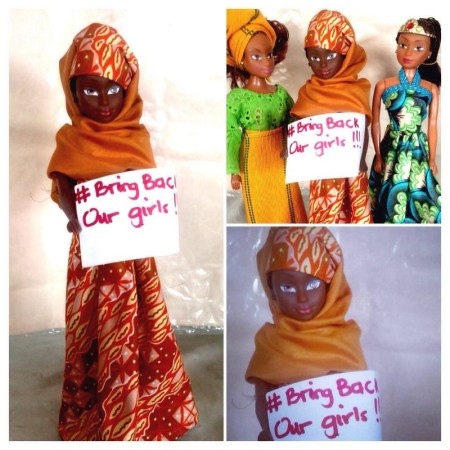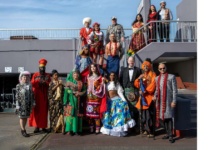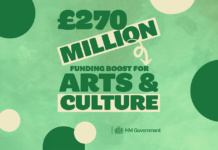For a long time now, customers have complained about the lack of toys, especially dolls, for children of colour. While several of these complaints tend to fall on deaf ears, one Nigerian entrepreneur decided to take action and has outsold Barbie by selling Nigerian fashion dolls, for African girls.
Taofick Okoya, who currently sells between 6000 and 7000 Queens of Africa and Naija Princess dolls a month, embarked on his journey after searching for birthday gift for young niece. He discovered that there were no dolls that looked like her, and decided that something needed to be done.
That was seven years ago, and since then Okoya’s business has been booming. He currently has around 15% of the market in his pocket and has expanded his brand across Africa, Europe and America, and has sold dolls to 10s of thousands on the African continent alone.
It hasn’t always been smooth sailing though. When he initially started the business Okoya was told that there was no market for black dolls. Un-perplexed by this notion, Okoya went on a mission to educate young girls about the importance of heritage and embracing one’s culture.
The brand aims to not only entertain girls but empower and educate them as well. Each doll comes with a book about the culture that the doll represents, and interestingly enough the dolls dressed in traditional Nigerian attire are said to be the most popular.
The dolls themselves come in several different designs, and each doll represents one of the three major tribes in Nigeria.
The Queens of Africa dolls, the most popular and more expensive of the brand, feature Nneka, the Igbo doll, Azeezah- the Hausa doll and Wuraola- the Yoruba doll while the less expensive but equally beautiful Naija princess dolls are Chinyere (Igbo), Aisha (Hausa) and Temilola (Yoruba).
Okoya seems to take social responsibility very seriously, and his mission, according to the Queens of Africa website is to ‘promote self-identity in African girls, and show African children that ‘black is beautiful.’
The Queen of Africa Project Girl Child Empowerment Program aims to just this by representing ‘progressive qualities such as endurance, peace and love’ and the company showed solidarity with the Bring Back Our Girls campaign by posting photos of the dolls holding ‘bring back our girls signs’.
All in all, the dolls, which sell from between 500 naira to 3,500 naira (£2-12) to cater to kids from all walks of life, are doing an awesome job of promoting a positive image of Africa as a whole.
Mr. Okoya, we salute you!












